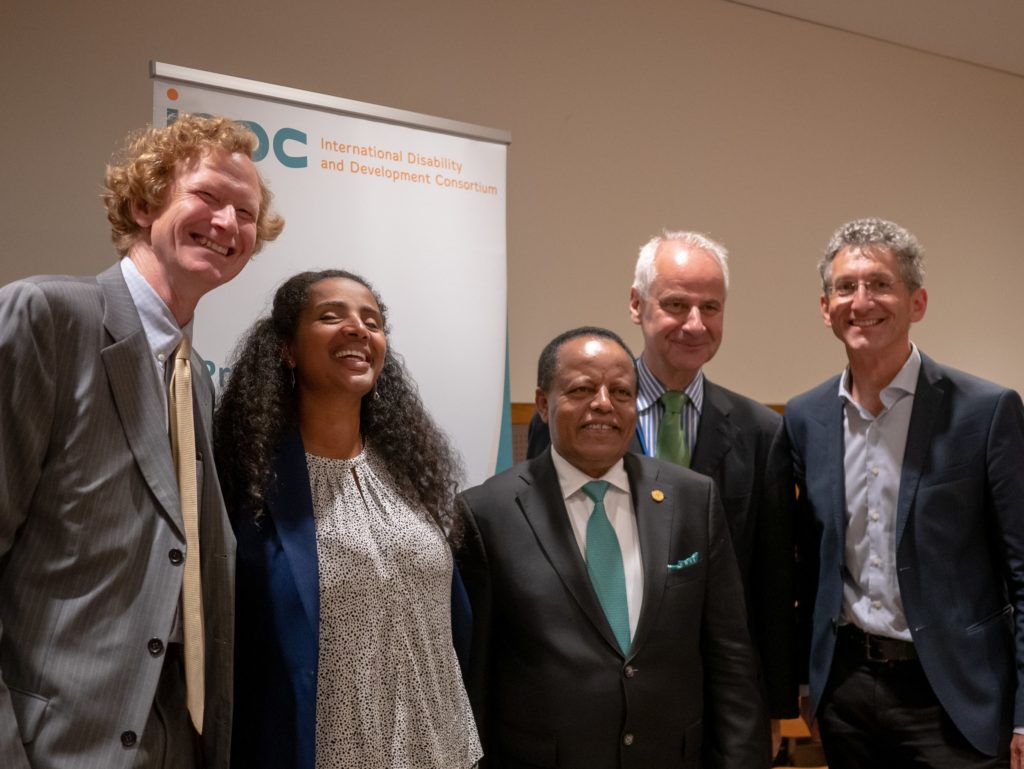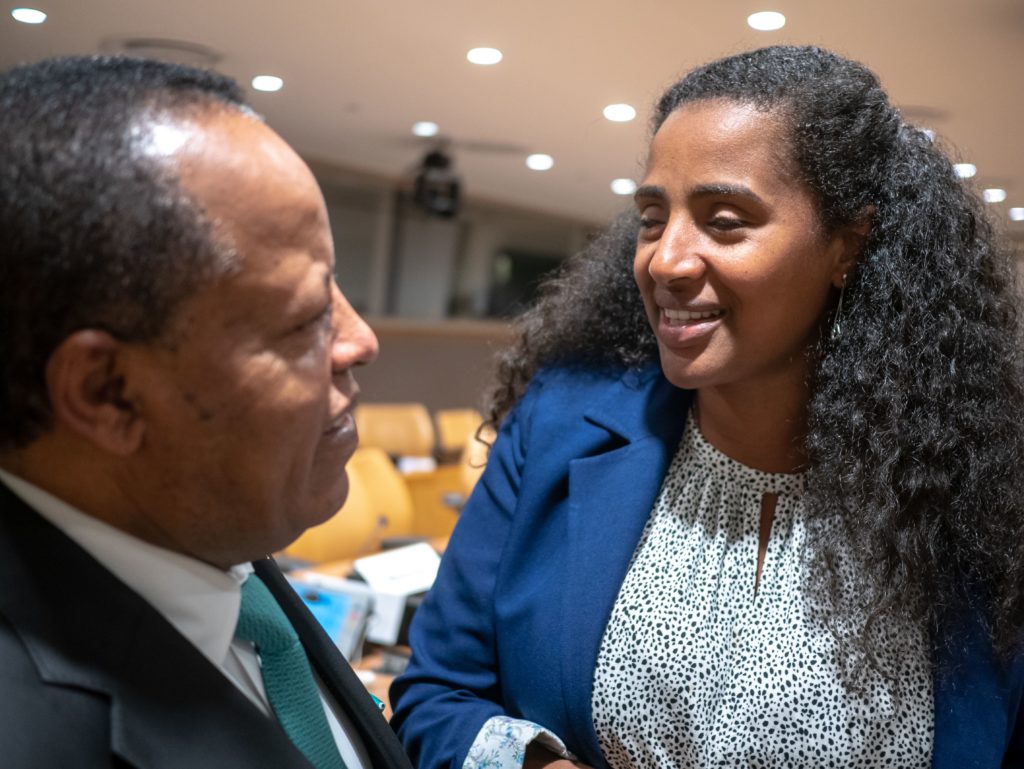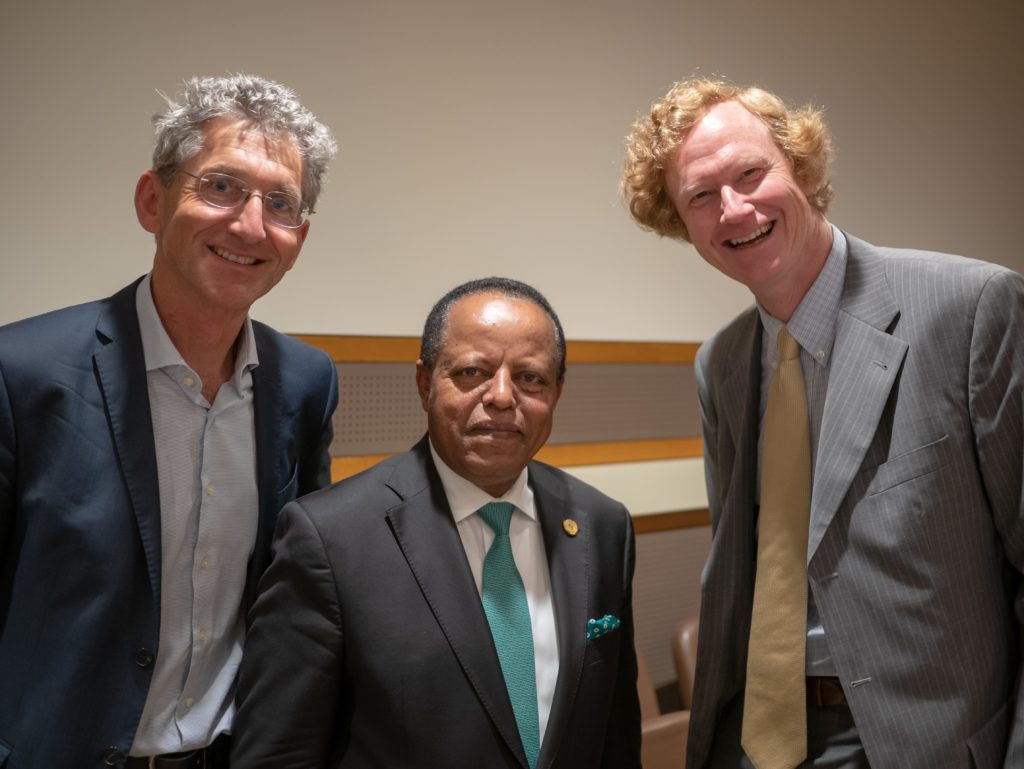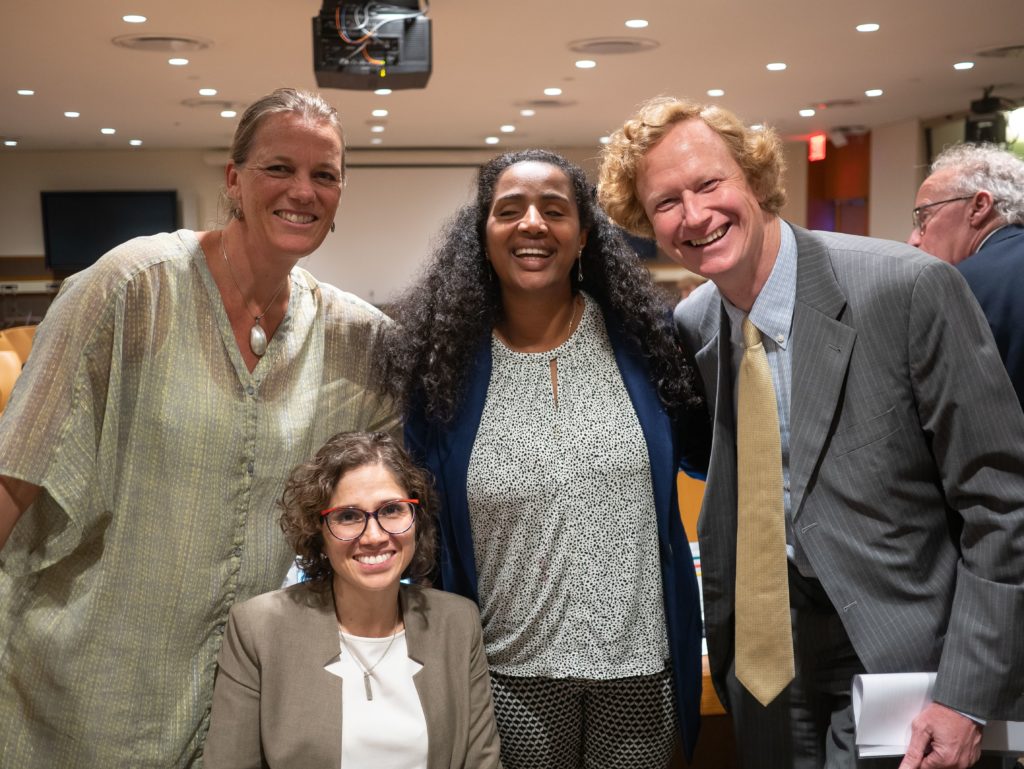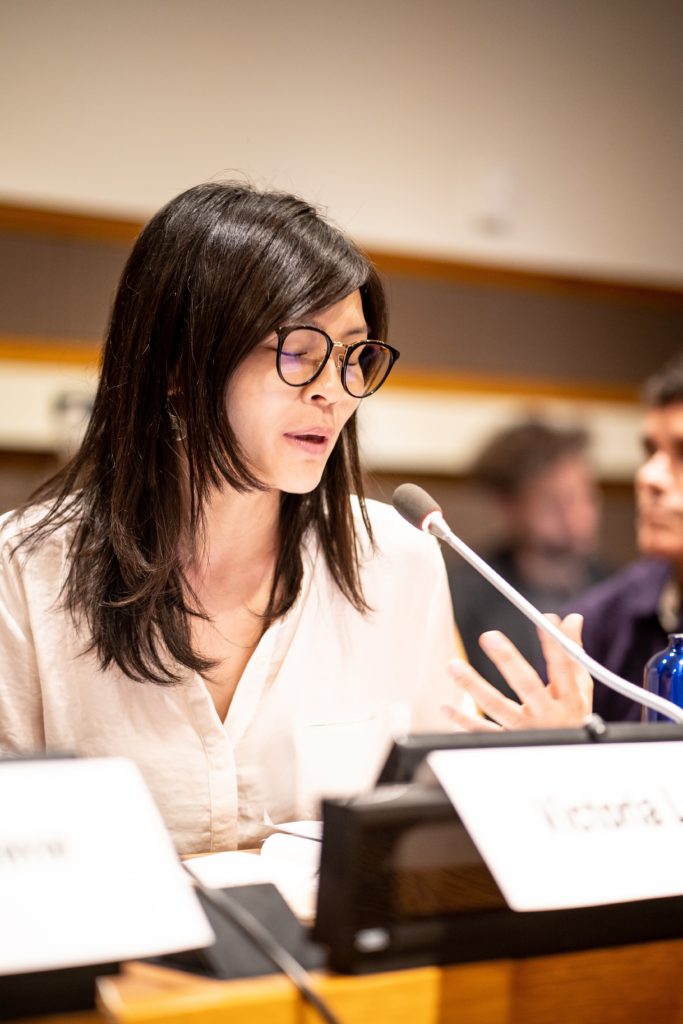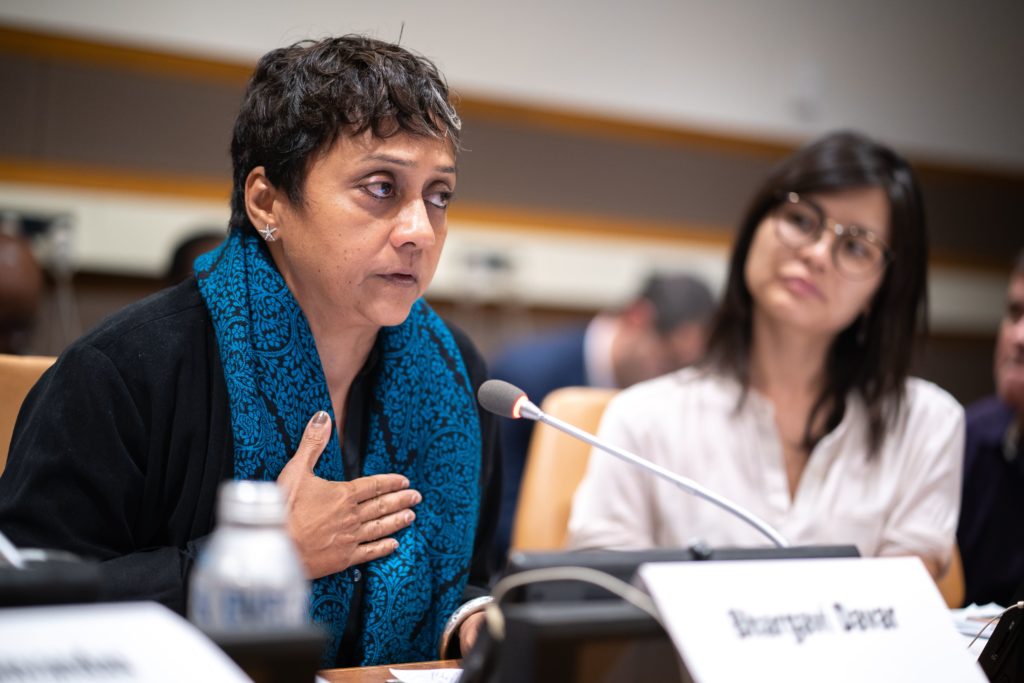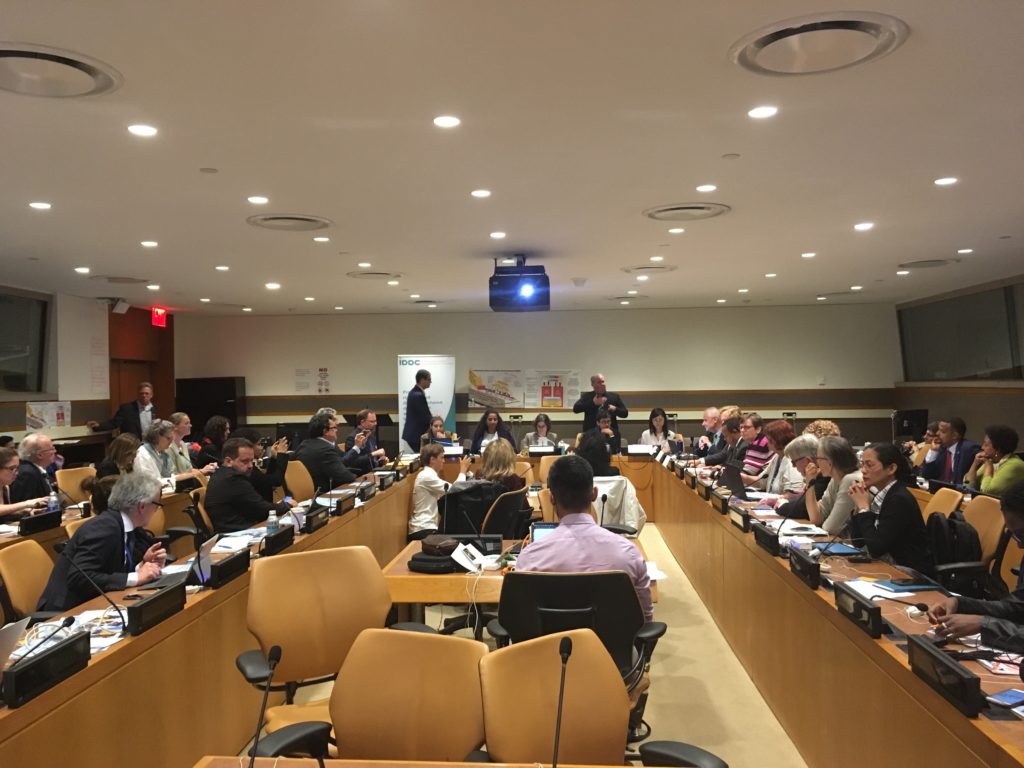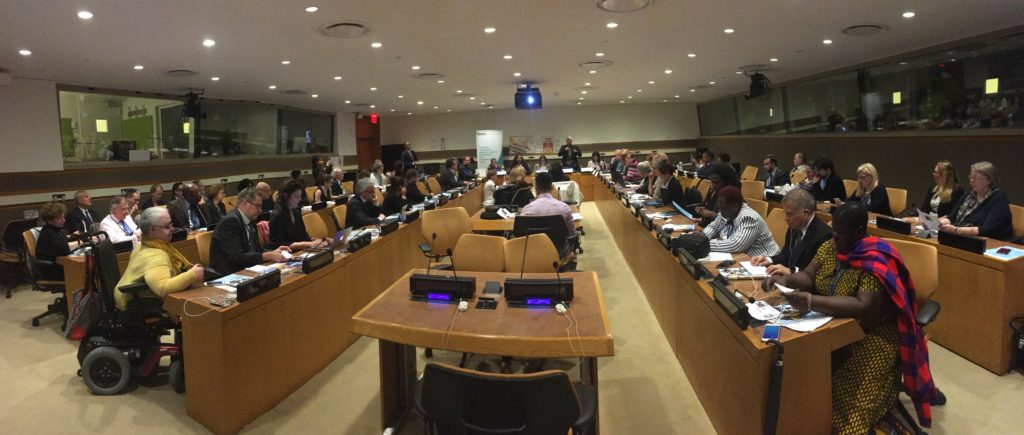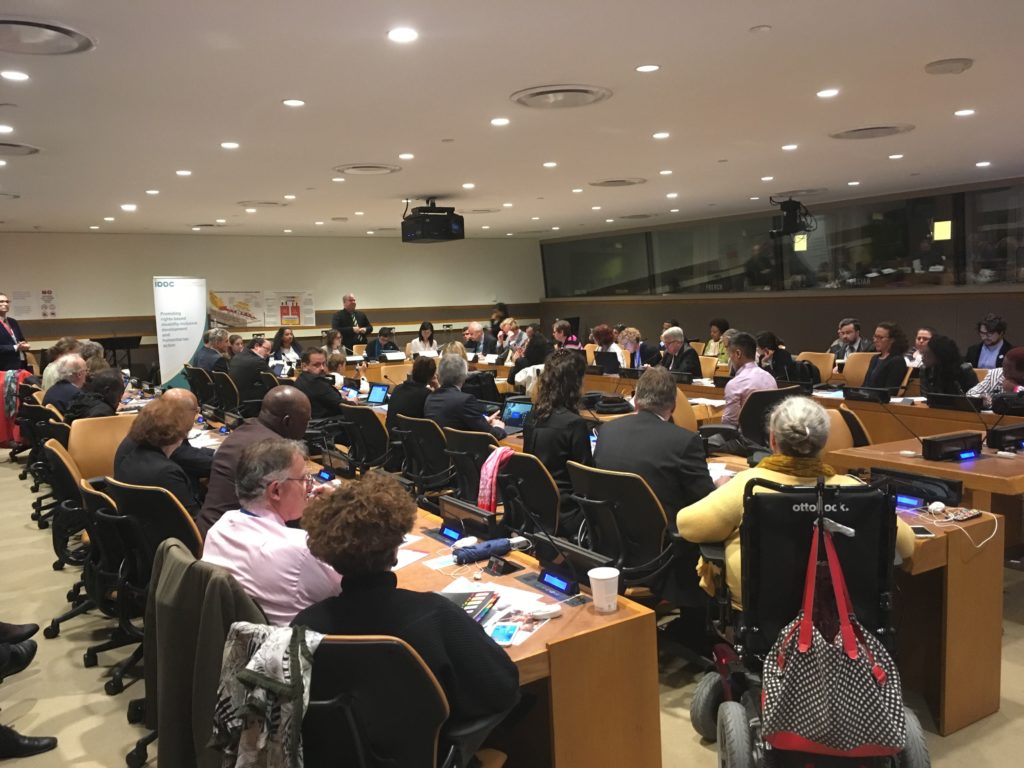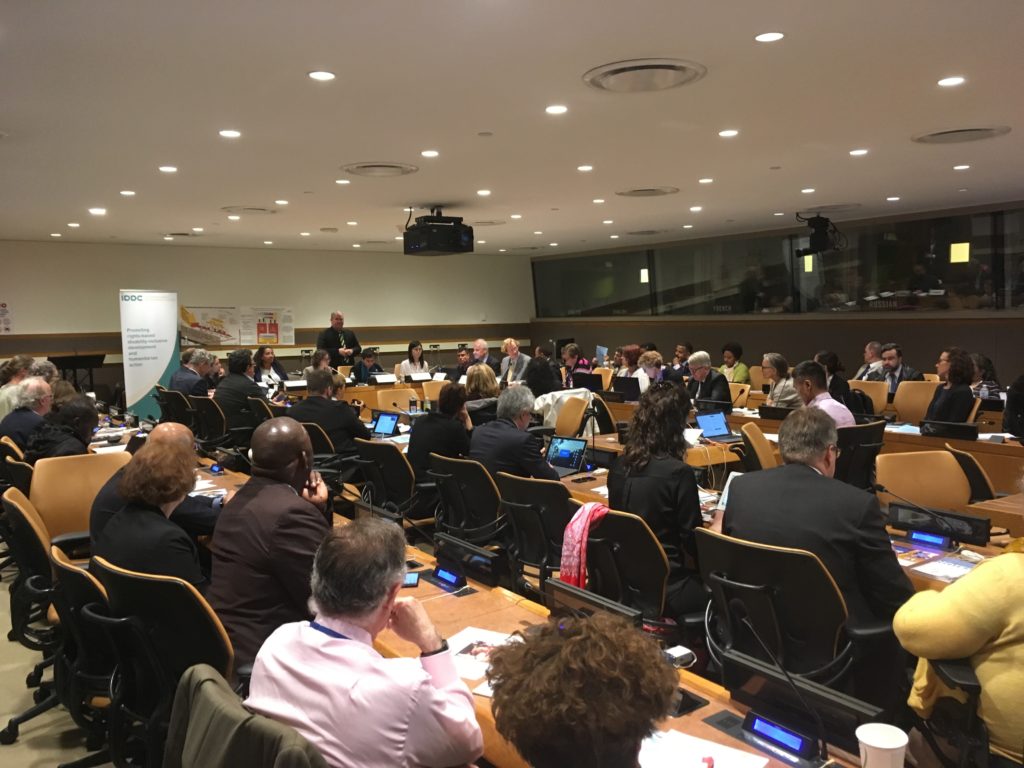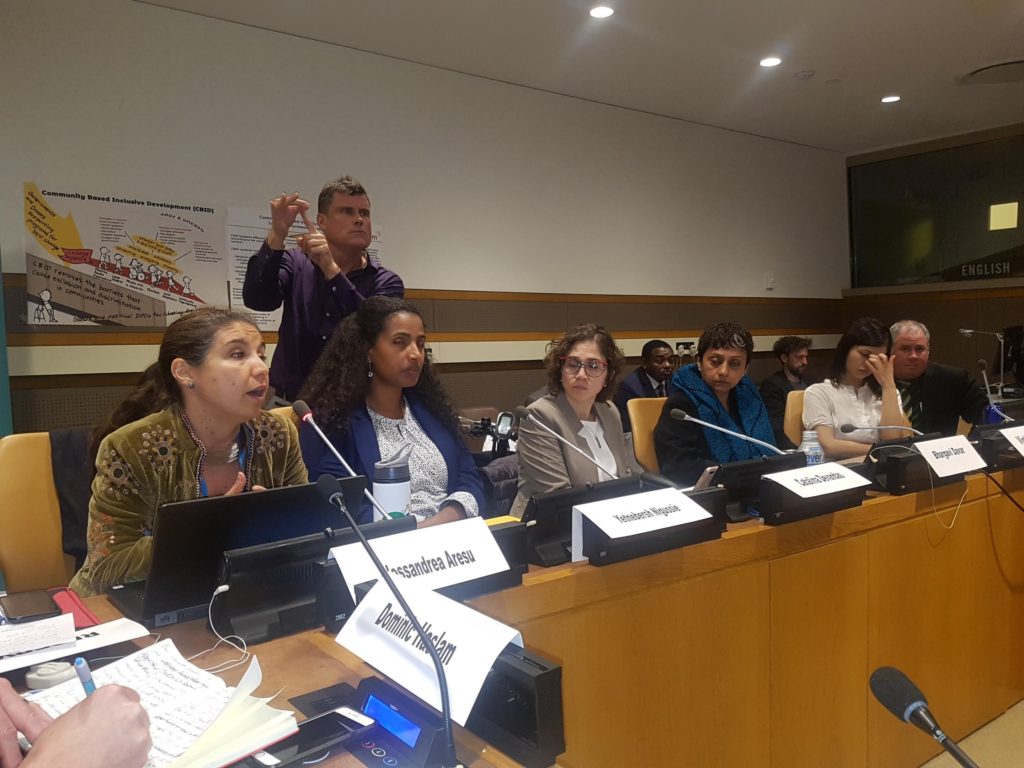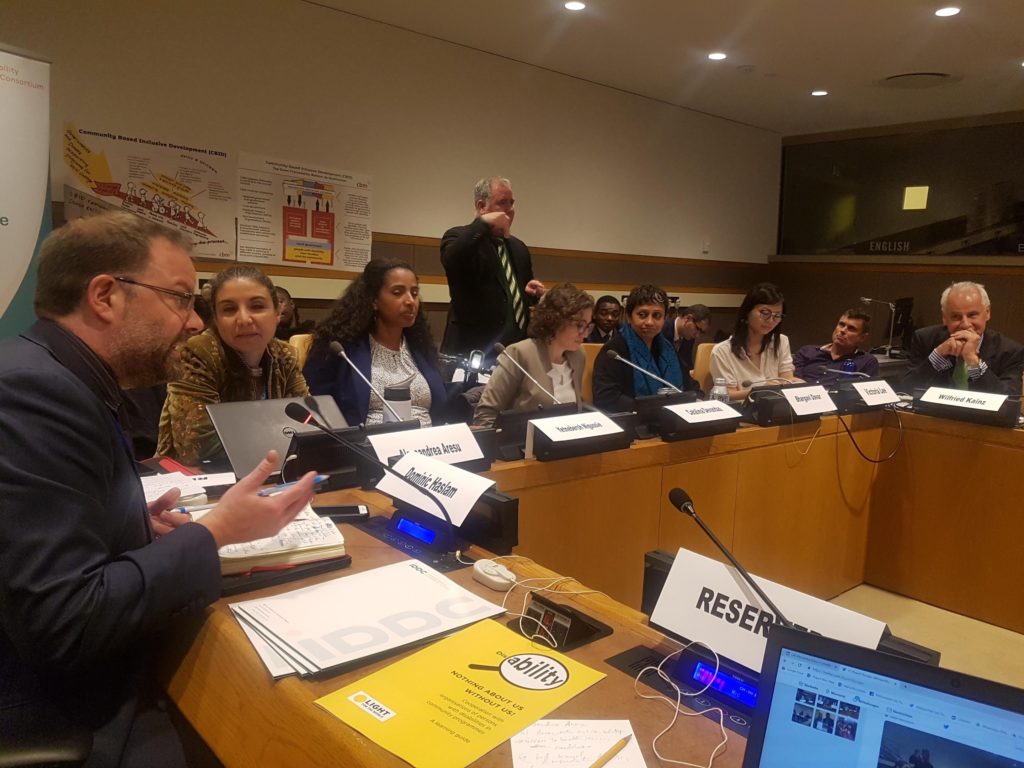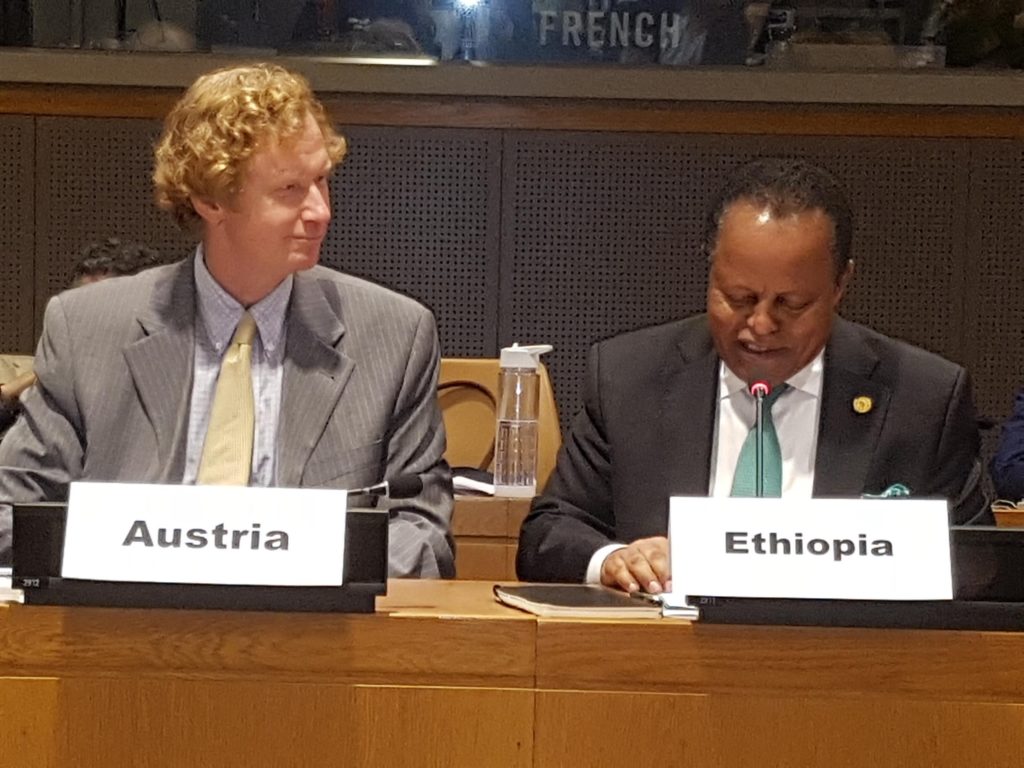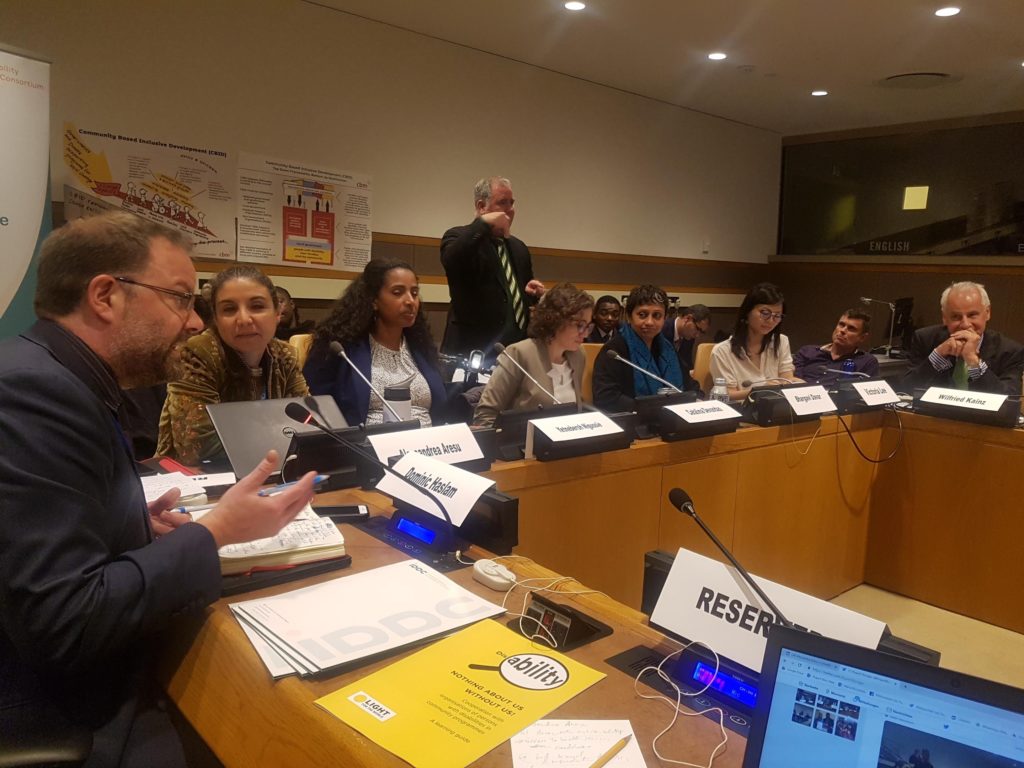Organised by the Permanent Mission of Austria with the support of the International Disability and Development Consortium (IDDC) and Zero Project, co-sponsored by the Permanent Missions of Ethiopia and Czech Republic, the International Disability Alliance (IDA), CBR Global Network and the United Nations Human Rights Office of the High Commissioner (OHCHR), the side-event was moderated by Catalina Devandas Aguilar, Special Rapporteur on the Rights of Persons with disabilities, and gathered:
- Ambassador Jan Kickert, Permanent Representative of Austria to the UN
- Ambassador Taye Atske-Selassie, Permanent Representative of Ethiopia to the UN
- Dr. Alessandra Aresu, Co-chair of IDDC Inclusive Health Task Group
- Bhargavi Davar, Convenor of TCI Asia Pacific and Director of Bapu Trust
- Dom Haslam, Chair of IDDC
- Victoria Lee, Adviser on human rights and disability in the OHCHR
- Wilfried Kainz, Head of Zero Project research team on Innovative Practices and Policies
- Yetnebersh Nigussie,Co-chair of IDDC DPO Partnership Task Group
Ambassadors Jan Kickert and Taye Atske-Selassie opened the side-event recalling respectively Austria’s commitment to the inclusion of persons with disabilities in communities, in particular through the country’s participation in Bridging the Gap-II, and Ethiopia’s belief in the need to involve communities in all the services of health, education and sanitation and work together with CSOs and community members.
Providing a general overview of the CBID concept, Victoria Lee emphasised that the Convention on the Rights of Persons with Disabilities contributed to an understanding of the human-rights based approach in rehabilitation. Hence CBID builds upon the learning of Community-Based Rehabilitation in line with the human-rights based approach. The rationale behind CBID is that no one should be excluded from development.
Yetnebersh Nigussie underlined the key role that DPOs play in CBID as experts in the community given their lived experiences but also as catalysts for advocacy by ensuring the quality and accountability of community development programmes.
Dr. Alessandra Aresu addressed CBID through the prism of health, raising the need to work proactively on stigma reduction with health workers to reduce the attitudinal barriers that persons with disabilities face when it comes to access to health information and services and to the full realisation of the right to health. She also explained that raising awareness in the community to lift misconceptions and ignorance related to sexuality and disability is the first step for women and girls with disabilities to access SRH information and services.
Bhargavi Davar shared learnings from the Sehel inclusion programme for psychosocial disabilities, which works as close as possible with people’s homes, families and communities to reduce the risk of institutionalisation. She recommended programmes to follow 3 principles: the utmost value of peer-to-peer support, the need to generate systematic dialogues within the communities, the need for human crisis responses.
Wilfried Kainz highlighted Zero Project’s research conclusion on the importance of working with peers, families and immediate surroundings to reach persons with disabilities.
Dom Haslam concluded the side-event with a question to the audience: “If CBR is the past, and CBID is the present, how do CBID programmes ensure a future where disability inclusion is built into every law, every policy and every implementation effort?”


